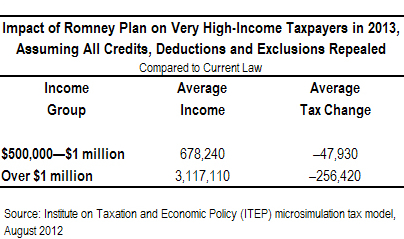 Colorado’s governor is inviting residents to participate in a series of town hall type meetings this year “designed to create informed and constructive conversations among Coloradans about some of the biggest issues facing the state.” While the leadership of the initiative, called TBD Colorado, encourages citizen input in five pre-determined issue areas – education, health, state budget, state workforce, transportation – it turns out a lot of Colorado citizens want to talk about taxes.
Colorado’s governor is inviting residents to participate in a series of town hall type meetings this year “designed to create informed and constructive conversations among Coloradans about some of the biggest issues facing the state.” While the leadership of the initiative, called TBD Colorado, encourages citizen input in five pre-determined issue areas – education, health, state budget, state workforce, transportation – it turns out a lot of Colorado citizens want to talk about taxes.
As State Tax Notes reported (subscription), many attendees at TBD (and yes, it does stand for “To Be Determined”) meetings are expressing support for an increase in the state’s income tax rate. And with good reason: Colorado’s tax system is not providing adequate revenue to support essential public services. For example, while lawmakers patted themselves on the back for their most recent budget, it makes deep cuts to college and university funding and left already inadequate spending on K-12 education flat.
While raising the income tax rate would certainly increase revenue, it would not solve Colorado’s basic tax fairness problems. The fact is, Colorado is home to a devastatingly regressive tax system. (Because the state has a disastrous TABOR law, however, any improvements to Colorado’s tax system require a state-wide public referendum.) According to a recent study (PDF) from the Institute on Taxation and Economic Policy (ITEP), Colorado families in the bottom 60 percent of earners pay more than 8 percent of their income in state and local taxes, while those in the top 1 percent pay just half that (roughly 4 percent). (Check out the Colorado Fiscal Policy Institute, which provides more of exactly this kind of information.)
One reason Colorado’s tax system is so regressive is because it uses a single, flat income tax rate as opposed to a graduated rate that increases with income in the way the progressive federal income tax does. A progressive income tax is without question state policymakers’ best tool for crafting a fairer tax system. Without it, states like Colorado are forced to rely on sales and property taxes (both regressive) that shift an unjust share of the tax burden to low- and middle-income taxpayers. Furthermore, the lack of a progressive income tax rate makes it harder for a state to raise both adequate and sustainable levels of revenue.
Tax policy is also relevant to Colorado transportation, which is on the TBD agenda, because Colorado has not increased its gas tax in 20 years. Adjusting the tax to account for the rising cost of transportation construction, the real value of the Colorado gas tax has fallen 40 percent since 1990, which is costing the state some $300 million a year in lost revenues. Improvements to roads, bridges and other infrastructure not only create short term construction jobs but also support local businesses that rely on efficient transportation. (Modernizing the gas tax is one of “Four Tax Ideas for Jobs-Focused Governors” from ITEP.)
The TBD initiative will culminate in concrete policy recommendations for improving Coloradans’ “quality of life.” Economic growth, functioning government agencies and a level playing field for all income groups would all contribute to that quality of life, and can all be improved by upgrading the state’s tax system – starting with repeal of the TABOR law.






 Governor Christie cutting back the state’s
Governor Christie cutting back the state’s  When news broke last week that a Senator on the GOP vice presidential short list had introduced one of the dumbest, most opportunistic and transparently political pieces of tax legislation of all time, we
When news broke last week that a Senator on the GOP vice presidential short list had introduced one of the dumbest, most opportunistic and transparently political pieces of tax legislation of all time, we 
 State revenues remain low, and there are historic,
State revenues remain low, and there are historic,